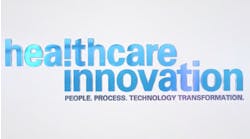A changing healthcare landscape that includes a shift to value-based reimbursement will transform the clinical decision support systems (CDSS) market in the U.S., according to a report from Frost & Sullivan.
The report noted that the advent of meaningful use and changing documentation requirements to achieve reimbursement are creating a complex and connected CDS infrastructure that includes digital workflow, electronic health records (EHRs) and point-of-care solutions.
EHRs are expected to be the hub for CDSS as growing volumes of patient data from a variety of sources will encourage workflow improvements to enable patient surveillance at the point-of-care. These systems will further evolve to include the pool of patient data needed to develop predictive analytics and enhance the performance of population health systems, the report stated.
As such, researchers have predicted that the overall U.S. CDSS market is expected to be worth $4.97 billion in 2021. “The introduction of value-based reimbursements and quality performance measures will increase the value of evidence-based data to document a clinical rationale and support medical decision making," Digital Health Principal Analyst Victor Camlek said in a statement. "Essentially, the CDSS market will comprise a wide array of companies, ranging from established clinical content providers to vendors of medical devices, analytical services, and workflow tools. This emerging ecosystem will encourage alliances and merger/acquisition activity, and underscore the necessity for a dedicated CDSS infrastructure vital to improving patient outcomes,” he said.
Indeed, key growth opportunities for the market will involve:
- Enhancing EHRs by including CDS data and working toward fully interoperable EHRs;
- Extending CDSS to population health systems by feeding in actionable data;
- Refining and advancing clinical surveillance technology; and
- Including access to patients who will benefit from the ability to retrieve accurate and relevant data pertaining to their medical condition that will encourage improved adherence and outcomes.
"The challenge will be to make CDSS a resource that is appropriate for all stakeholders that is compliant with privacy and security guidelines, and flexible enough to function in a constantly evolving healthcare regulatory environment," added Camlek.

